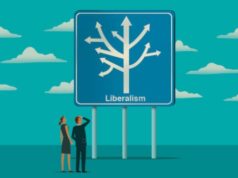The recent movie Captain America: Civil War gives some interesting insights about the real world. (If you haven’t yet seen it, proceed with caution. There will be spoilers).
The film is set about one year after the events of Avengers: Age of Ultron, and opens with a division of the Avengers – Captain America, The Falcon, Black Widow, and Wanda Maximoff – on a mission in Africa to stop a group of terrorists. But it doesn’t end well – or rather, it doesn’t end as The Avengers expected.
The Avengers are becoming a private entity to save the people in a much better way than the existing Government. Yet, their activities are also causing a lot of chaos in society. The UN therefore steps in to put regulations on their functioning and set up Government control and the name of “Sokovia Accords” (a throwback to the climactic Battle of Sokovia with Ultron, events from which are still haunting Iron Man). This entire debate divides The Avengers into two groups – one siding with Captain America and the other with Iron Man – the former standing against the UN decision, while the latter supports it. The demands being made by various governments and the United Nations is that The Avengers stop being a privately run paramilitary organization and answer to the Government.
As we all know, anything that comes under government control is as good as doomed. The clip below elucidates the discussion between both the teams, and Captain America makes the case for why he cannot, and the rest of them should not, give up their autonomy:
Captain America: “We may not be perfect, but the safest hands are still our own.”
Iron Man: “If we don’t do this now [submit to the accords], it will be done to us later.”
I don’t want to spoil the entire movie for my readers and hence I’d request you to go, watch and enjoy this movie but keep in mind about the libertarian angle that this movie has taken.
As Captain America said in the above clip, private entities are responsible for their own actions. If they do good they get incentivized, and bad actions result in bad outcomes. Even Iron Man shut his weaponry after learning the destruction that they caused. It is simple – private entities, unlike government, have to lure and tempt people to buy the products. If the goodwill goes down in the market, the company goes down as well.
When liberals ask for less government, this doesn’t imply that they stand for no regulation. They believe and advocate for strict law and order.
Captain America has always fought against centralized power, be it when he was fighting in WWII or against SHIELD (in the last Avengers movie, his main issue with SHIELD was that there was no transparency of information). Power corrupts and absolute power corrupts absolutely. If there is competition to government services, there are automatic checks and balances on their use of power. The minute they have monopoly over power, we can bid freedom and choice goodbye.
True that in the above instance, SHIELD was infiltrated by HYDRA, but who’s to say that the UN, or an all-powerful government would never be compromised? Monopoly creates opportunity for infiltration, for cronyism and for collaboration between two powerful parties. Competition controls for all of the above. It is always about who watches the watchmen.
If you follow daily news and politics you’ll see the corruption and the number of government bodies involved in underhanded activities which affect all of us, be it money laundering, issues related to international relations, or day-to-day work of the economy.
If we come out of this movie and apply the same case in the real world, we can easily see government taking control over the lives of people slowly and gradually. We all know how private entities have come forward to make the world a better place: cellphones, laptops, cosmetics, vehicles or anything else. The most recent example from Delhi is banning Ola and Uber cabs and surge pricing. If we look 5-6 years back we will see expensive cab services (around Rs 25/Km) but then came a parallel system to challenge the age old cabs and result was in front of us. Did the Government in the past try to give the same luxury how private players provided to the customer?
There are always few things which should be left for the market and let them analyze as to how to figure out the best solution for the people. As Milton Friedman has said, “If you put the federal government in charge of the Sahara Desert, in five years there’d be a shortage of sand.” I am not saying Government cannot come up with solutions, but one has to understand what the cost of allowing them to be the only ones tackling these issues.
(The author, Sadaf Hussain works in the development sector, is interested in politics, economics and human behaviour, and supports logic and the free market. Good at cooking, taking pictures and sarcasm. You can follow him at @hussainsadaf1)
Post Disclaimer
The opinions expressed in this essay are those of the authors. They do not purport to reflect the opinions or views of CCS.






